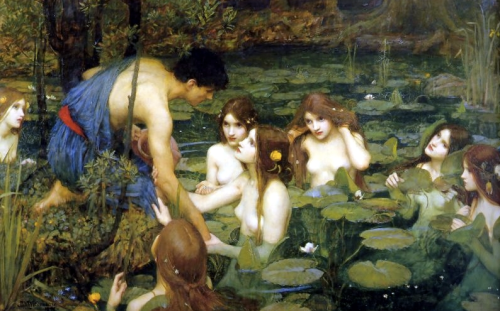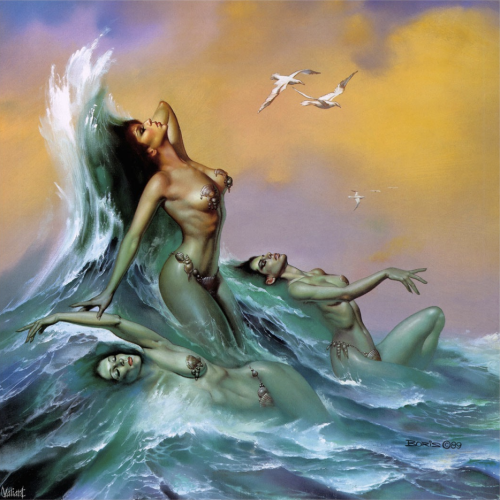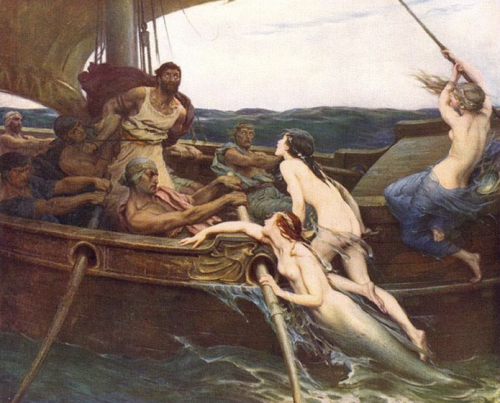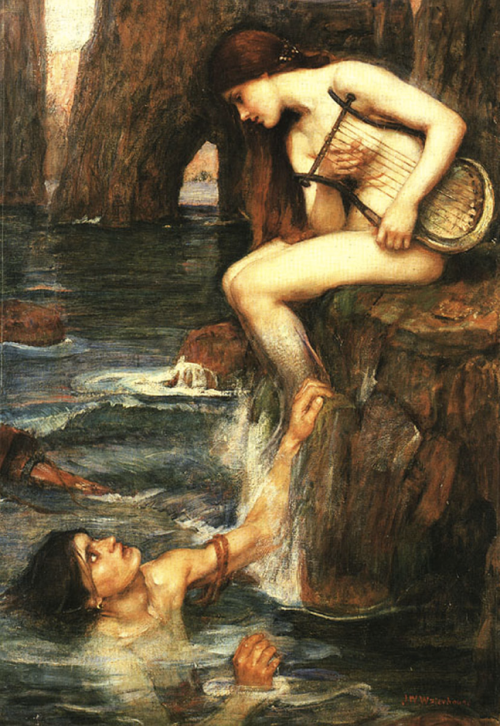Sirens
In Greek mythology, the Sirens were dangerous and beautiful creatures, portrayed as femme fatales who lured nearby sailors with their enchanting music and voices to shipwreck on the rocky coast of their island. Roman poets placed them on some small islands called Sirenum scopuli. In some later, rationalized traditions, the literal geography of the “flowery” island of Anthemoessa, or Anthemusa, is fixed: sometimes on Cape Pelorum and at others in the islands known as the Sirenuse, near Paestum, or in Capreae. All such locations were surrounded by cliffs and rocks.
When the Sirens were given a name of their own they were considered the daughters of the river god Achelous, fathered upon Terpsichore, Melpomene, Sterope, or Chthon. Although they lured mariners, for the Greeks the Sirens in their “meadow starred with flowers” were not sea deities. Roman writers linked the Sirens more closely to the sea, as daughters of Phorcys. Sirens are found in many Greek stories, particularly in Homer’s Odyssey.
According to Ovid, the Sirens were the companions of young Persephone and were given wings by Demeter to search for Persephone when she was abducted. However, the Fabulae of Hyginus has Demeter cursing the Sirens for failing to intervene in the abduction of Persephone.
The Sirens might be called the Muses of the lower world, Walter Copland Perry observed: “Their song, though irresistibly sweet, was no less sad than sweet, and lapped both body and soul in a fatal lethargy, the forerunner of death and corruption.” Their song is continually calling on Persephone. The term “siren song” refers to an appeal that is hard to resist but that, if heeded, will lead to a bad conclusion. Later writers have implied that the Sirens were anthropophagous, based on Circe’s description of them “lolling there in their meadow, round them heaps of corpses rotting away, rags of skin shriveling on their bones.” As Jane Ellen Harrison notes of “The Ker as siren:” “It is strange and beautiful that Homer should make the Sirens appeal to the spirit, not to the flesh.”
“They are mantic creatures like the Sphinx with whom they have much in common, knowing both the past and the future,” Harrison observed. “Their song takes effect at midday, in a windless calm. The end of that song is death.” That the sailors’ flesh is rotting away, though, would suggest it has not been eaten. It has been suggested that, with their feathers stolen, their divine nature kept them alive, but unable to feed for their visitors, who starved to death by refusing to leave.
According to Hyginus, sirens were fated to live only until the mortals who heard their songs were able to pass by them.






